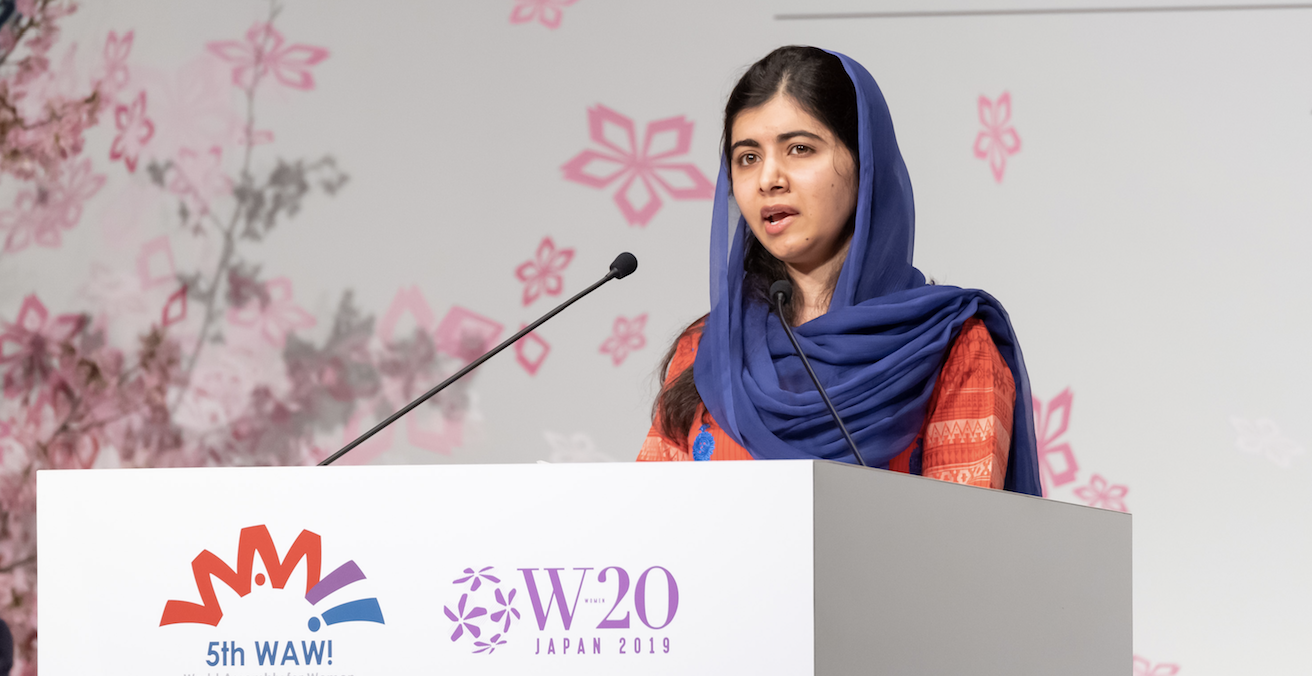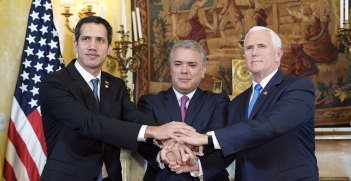W20 Japan Summit: Closing the Gender Gap for Future Prosperity

The theme for the W20 Japan summit held in Tokyo in March was “closing the gender gap for future prosperity.” The head of the Australian delegation outlines what was achieved at the summit, but also how far there is still to go to achieve equality of opportunity for women around the world.
The fifth Women 20 (W20) summit was held in Tokyo from 22-24 March 2019 as part of Japan’s Group of Twenty (G20) Presidency. This follows W20 meetings held in Istanbul in 2015, Xi-an in 2016, Berlin in 2017 and Buenos Aires, less than 6 months ago, in October 2018.
The reason the most recent two summits were held so close together is that the G20 Leaders’ summit will be held in late June 2019 in Osaka, so the W20 and the other G20 engagement groups all need to meet before then. The upcoming abdication of Japanese Emperor Akihito on 30 April and the end of the Heisei era have also complicated matters as there will be a 10-day holiday period in Japan. Although Japan uses the Gregorian calendar, it is accompanied by year designations stating the year of the reign of the current emperor. The transition to the new Reiwa era is, therefore, quite complicated for the government, businesses and the country’s people. Subsequently, it has reduced the time available for meetings associated with the G20.
The Japanese also decided to hold this year’s W20 summit in conjunction with an annual conference organised by its Ministry of Foreign Affairs, namely the World Assembly for Women (known as WAW!). This was also the fifth annual WAW! conference held at the New Otani Hotel in Tokyo where there were approximately 1,000 attendees. It was the first W20 conference organised by government, except for the two separately organised sessions which were restricted to approximately 60 delegates from the 19 countries and the European Union. Spain, which has “permanent guest” status at the G20, was also an active participant in these sessions.
This year, I led the Australian delegation which also included Erin Watson-Lynn from the Perth USAsia Centre and Melanie Brock, an Australian businesswoman based in Tokyo. After the Buenos Aires summit last year, I noted it was very different to the Berlin summit the year before. The same can be said again. The fact German Chancellor Angela Merkel attended the conference in Berlin three times, along with a cast of other well-known women such as Christine Lagarde, Ivanka Trump and Queen Maxima of the Netherlands, meant the event received plenty of publicity around the world. The Argentine summit was a quieter affair but included some serious speakers and was attended by President Mauricio Macri and his wife Juliana Awada.
It is apparent Japan is taking the empowerment of women seriously and the government now talks of a society “where women shine.” Prime Minister Shinzo Abe hosted a pre-conference dinner at the Akasaka Palace for speakers and heads of delegations along with local dignitaries. However, it was disappointing not all W20 delegates were invited. Prime Minister Abe also spoke at the opening of the conference where he was presented with the Japan W20 2019 Communiqué. He said the number of female executives should now be mandated, and this must be explained to company shareholders. However, Japan needs more female role models. I noted his comments: “One book, one pen can change the world. One voice, one action can change the world.” But, despite Mr Abe’s rhetoric about promoting women in Japan, it is interesting to note that under Imperial House Law a female can still not become empress in her own right. The only daughter of the incoming Emperor Naruhito will be bypassed by his younger brother, Prince Akashino, when Naruhito dies. Much to the relief of the powers that be in Japan, Akashino finally had a son in 2006 – the arrival of a son after two daughters means male succession is secure for years to come. So much for role models!
Keynote addresses were made by Nobel Peace Prize Laureate Malala Yousafzai, former Chilean President and now United Nations High Commissioner for Human Rights Michelle Bachelet and Argentine Vice President Gabriella Michetti.
At just 21 years of age, and now studying at Lady Margaret Hall Oxford, Malala (as she is universally known) is an inspiration to all those who fight for education, not just for girls. However, there is no doubt the situation is worse for girls. Around the world, 130 million girls are not in school and 1 billion lack the skills needed to pursue careers. Last year the Malala Fund and the World Bank published research showing that if all girls completed secondary school, they could add up to US $30 trillion to the world economy.
Michelle Bachelet spoke of how discrimination of women is pervasive across the world and shaped by a view that women should be bound to the service of a society whose goals and approaches are dominated by men. Currently, more than 2.7 billion women are legally restricted from having the same choice of jobs as men. Billions more are deprived of fair access to education and training or trapped in low-level jobs with low pay and few prospects for career growth because of social attitudes and discrimination within companies.
Argentine Vice President Michetti, who uses a wheelchair following a car accident in 1994, also provided inspiration to all those present. She spoke of “women who transform, who make a mark, who never stop chasing after their dreams until they reach their goals…. Women who step up, who walk gently but also with strength when needed. Women who pour their souls into their deeds, who heal, give comfort and courage.”
Women 20 delegates had worked on the Japan W20 2019 Communiqué for several months before the summit and finally came to agreement on the wording at midnight, only nine hours before its presentation the next morning to Prime Minister Abe. The two-page communiqué begins:
“We the representatives of the Women 20 (W20) network, fully endorse the statement in the Buenos Aires G20 Leaders’ Declaration that ‘gender equality is crucial for economic growth and fair and sustainable development.’ We reiterate the need for women and men to work in partnership to close the gender gap in order to achieve the Sustainable Development Goals (SDGs).”
“During Japan’s presidency of the G20, the W20 pays particular attention to the inclusive and responsible use of all new technologies, including artificial intelligence (AI), due to their critical impact on all segments of society, ensuring no woman is left behind.”
It goes on to list recommendations to G20 Leaders under seven headings:
- Request their labour and employment ministers to present a mid-term report on the 2014 Brisbane commitment to reduce the gender gap in labour force participation by 25 percent by 2025 during the 2020 G20
- Remove systematic legal and social barriers in the labour market and provide solutions for achieving gender equality
- Close the digital gender gap and ensure that women can exercise their digital rights
- Ensure financial inclusion, promote women’s entrepreneurship, and accelerate access to investment and markets
- Promote life-long learning, and education on gender equality in schools and workplaces to eliminate gender stereotypes and unconscious bias
- End all forms of violence against women and girls in public and private spheres, including social media
- Establish effective and transparent governance and accountability mechanisms for achieving gender equality
Points 1 and 7 reflect the strong view which was first evident in Buenos Aires that the time has come to move beyond rhetoric and to start measuring the actions each country is taking to achieve goals such as the “25 by 25” mentioned above.
A Menu of Actions to accompany the communiqué is still being worked on but will be finalised well before the leaders’ summit in June.
In the final closed session, there was an important discussion about how the W20 will continue to function in the coming years. As one of the seven engagement groups within the G20 (along with the B20, C20, L20, S20 and Y20), the W20 is independent of national governments. Its delegates come mainly from academia, think tanks, female-owned or -led businesses and female organisations. The sole French delegate this year was again a man from Jamais sans Elles (Never without Women), who has become an important contributor to W20 since the Buenos Aires meeting six months ago. Delegates to W20 spend a lot of time in discussions before each summit via a website and webinars and there was also a separate meeting held in Paris early in February. It was emphasised that those who sign up to be delegates representing their countries must be prepared to spend time beyond just attending the annual summit. There are some very dedicated women involved in this process.
In spite of all the inspirational words we heard from Malala, Bachelet, Michetti and many other speakers during the conference, there is still much work to be done to achieve equality of opportunity for women and girls. But there is an impetus for change in most countries even if it is starting from different bases. The pace will vary from country to country. In 2017, the Australian government published its Towards 2025 Strategy to Boost Women’s Workforce Participation accompanied by an implementation plan. The Workplace Gender Equality Agency also provides an annual update of reporting on data collected from Australian employers in the private sector.
Saudi Arabia will take over the Presidency of the G20 on 1 December, so the next W20 will take place there in 2020. There have been cultural differences in the five previous W20 summits but they will be far greater next year. It will be interesting for W20 delegates to learn of the challenges faced by Saudi women who have only just been permitted to drive and whose lives are completely dominated by the male guardianship system, which means women do not have control of their own lives.
Zara Kimpton OAM is national vice president of the Australian Institute of International Affairs and the leader of the Australian Delegation to W20 Japan.
This article is published under a Creative Commons License and may be republished with attribution.




